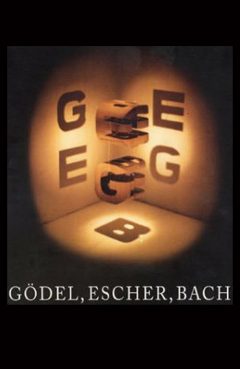Godel, Escher, Bach: An Eternal Golden Braid

Release Date: //
Country of Release:
Length:
MPAA:
Medium: Literature
Genre:
Release Message: Explores common themes in the lives and works of logician Kurt Gdel, artist M. C. Escher and composer Johann Sebastian Bach, GEB expounds concepts fundamental to mathematics, symmetry, and intelligence. Written by Douglas R. Hofstadter.
Description: Godel, Escher, Bach: An Eternal Golden Braid, also known as GEB, is a 1979 book by Douglas Hofstadter. The tagline: "a metaphorical fugue on minds and machines in the spirit of Lewis Carroll" was used by the publisher to describe the book.[1] By exploring common themes in the lives and works of logician Kurt Gdel, artist M. C. Escher and composer Johann Sebastian Bach, GEB expounds concepts fundamental to mathematics, symmetry, and intelligence. Through illustration and analysis, the book discusses how self-reference and formal rules allow systems to acquire meaning despite being made of "meaningless" elements. It also discusses what it means to communicate, how knowledge can be represented and stored, the methods and limitations of symbolic representation, and even the fundamental notion of "meaning" itself. In response to confusion over the book's theme, Hofstadter has emphasized that GEB is not about mathematics, art, and music but rather about how cognition and thinking emerge from well-hidden neurological mechanisms. In the book, he presents an analogy about how the individual neurons of the brain coordinate to create a unified sense of a coherent mind by comparing it to the social organization displayed in a colony of ants.